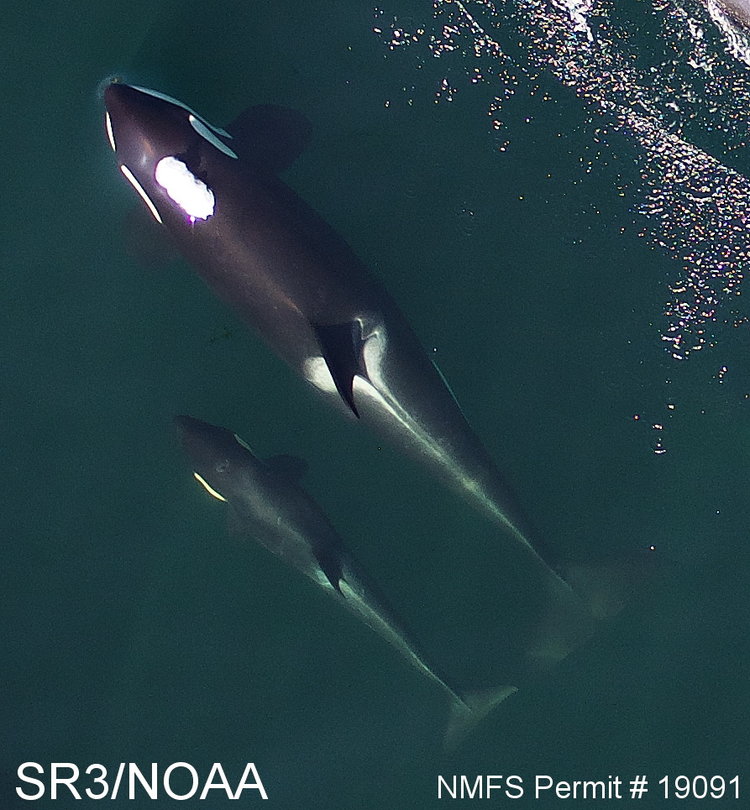

Aerial image of Southern Resident killer whale juvenile J50, swimming alongside her mother (J16) on September 3rd 2018 (right) for comparison. This highlights the small size and thin body profile of J50. Images by Holly Fearnbach (SR3) and John Durban (NOAA) obtained with an unmanned drone, piloted non-invasively >100ft above the whales under NMFS research permit #19091.
American officials are considering removing an extremely ill endangered orca from her family unit for a hands-on physical exam, saying field treatment has been unsuccessful.
The orca known as J50 is one of only 75 remaining southern resident killer whales, and has declined over recent months to the point where she is emaciated and often lagging behind her family.
The National Oceanic and Atmospheric Administration says in a statement issued Tuesday night that veterinarians believe they have exhausted all reasonable remote treatment options and the juvenile whale’s survival is unlikely.
The administration says response teams would only act to rescue J50 if she becomes stranded or separated from the rest of her family group, so any risks of the intervention to the pod are minimized.
If experts who assess J50 in the field determine she cannot be treated or rehabilitated, teams would promptly return her to J Pod to spend the rest of her life with her family.
NOAA is hosting meetings in Seattle and Friday Harbor, Wash., this weekend to gauge public opinion on possible interventions.
Canada’s Department of Fisheries and Oceans did not immediately respond to a question about whether it would do the same in Canada.
Source: Canadian Press




